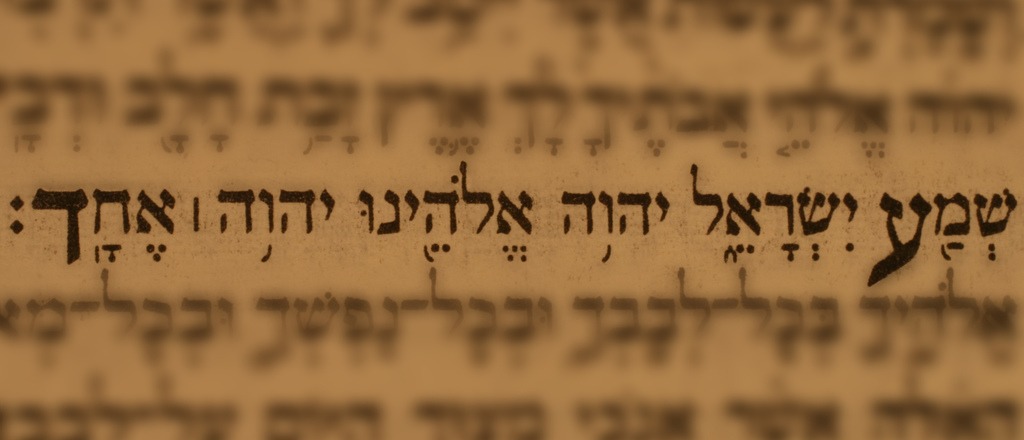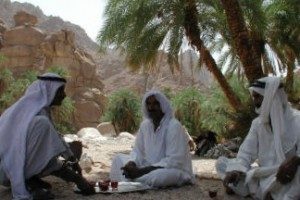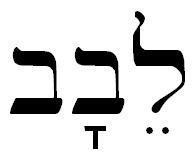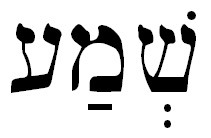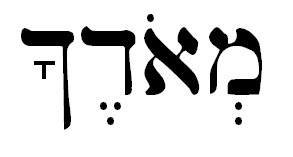Learning about Jesus’ Jewish culture never ceases to add depth to his words. For instance, it appears that Jesus was involved in some of the same key discussions that other rabbis participated in. One important rabbinic discussion that was going on in Jesus’ time focused on the question, “Mah hu clal gadol b’Torah?” – literally, “What is commandment-big of the Law?” We can hear those very words being asked of Jesus in Mark:
One of the teachers of the law came and heard them debating. Noticing that Jesus had given them a good answer, he asked him, “Of all the commandments, which is the most important?” “The most important one,” answered Jesus, “is this: ‘Hear, O Israel, the Lord our God, the Lord is one. Love the Lord your God with all your heart and with all your soul and with all your mind and with all your strength.’ The second is this: ‘Love your neighbor as yourself.’ There is no commandment greater than these.” (Mark 12:28-31, NIV)
 Jesus didn’t use his own words to summarize the Torah for the lawyer. He quoted Deuteronomy 6:4-5, the first two lines of the Shema (pronounced “Shmah”), the “pledge of allegiance” that Jesus as an observant Jew would have said every morning and evening. By doing this, a Jew would remind himself of his commitment to love God, to dedicate himself to following God and doing his will.
Jesus didn’t use his own words to summarize the Torah for the lawyer. He quoted Deuteronomy 6:4-5, the first two lines of the Shema (pronounced “Shmah”), the “pledge of allegiance” that Jesus as an observant Jew would have said every morning and evening. By doing this, a Jew would remind himself of his commitment to love God, to dedicate himself to following God and doing his will.
The rabbis of Jesus’ day said that when a person prayed the Shema, he “received upon himself the kingdom of God,” meaning that he was placing God as king over his life. Some Jews teach their children the Shema as soon as they learn to talk! It is the central affirmation for a Jewish person of his or her commitment to the Lord. (Jesus’ next statement, “love your neighbor,” is from Leviticus 19:18. You can read about it here.)
Many have heard of the Shema. But it is helpful to unpack some of the richness of these lines that were central to Jesus and to his faith. Let’s look at some of what it means. First, lets look at the saying in Hebrew:
Shema (Hear)
Israel,
Adonai (the Lord)
elohenu (our god)
Adonai (the Lord)
echad! (one/alone)
“Shema” is the first word and is usually translated “Hear!” But the word shema actually has a stronger meaning than that. It has the sense of “take heed” or “obey.” In fact, when we see the word “obey” in English in the Old Testament, the Hebrew word behind it is usually “shema”! When Jesus says “He who has ears to hear, let him hear” he really means, “you have heard my teaching, now take it to heart and obey it!” Likewise, the Shema is telling the Israelites to obey – to act out their belief in the Lord, not just to “hear.”
The word “echad” in Hebrew is the word for one. Jews and Christians have often debated its meaning, since Jews have used the fact that it means “one” to see it as a reason that they cannot believe in a trinity. Christians point out that it can mean a compound unity, like one bunch of grapes. But, the widely used Jewish translation of the Scriptures, the JPS Tanakh, says that the best reading of the word in this phrase really is not “one” but “alone.” So, instead of reading that sentence as “The Lord our God, the Lord is one,” it is more accurate to read it as “The Lord is our God, the Lord alone!”
This changes the emphasis of the whole sentence so that instead of being a creed of monotheism, it is actually a command for their absolute allegiance to God. This also fits better into the rest of the passage, which tells them to love God whole-heartedly and to obey his commands.
Let’s look at the next phrase in Deuteronomy,
“Love the Lord your God with all your heart, and with all your soul, and with all your strength.”
On the surface, we think we understand heart, soul and strength, but knowing the Hebrew background of the words adds great richness to this command.
Heart (levav) in Hebrew does not just mean your emotions, but also means your mind and thoughts as well. So we are to use all of our thoughts to love the Lord – as Paul says, we “take captive every thought to make it obedient to Christ.” (2 Cor 10:5). In the gospels the phrase “and all your mind” is there to emphasize that fact, but from Moses’ time it would have been understood that way as well. Whenever we read “heart” in the Old Testament we should understand it in terms of the intellect as well as the emotions, because in Hebrew, it can mean your mind.
Soul (nephesh) also can have a different sense in Hebrew than just your “spirit” or “emotions.” Nephesh means “life” as well as “soul.” So the Jewish interpretation is that you are to love the Lord with all of your life, meaning with every moment throughout your life, and be willing even to sacrifice your life for him. If Jews are able, they will quote the Shema at their death to make a final commitment to the God of Israel. Many a Jewish martyr has exclaimed the Shema with his last breath as a testimony to that fact.
Strength (me’od) is an unusual word usage which really means “much” or “very”. You could translate the passage “with all of your much-ness” or “with all of your increase”. It is interpreted to mean “with everything that you have” — your money, your time, your possessions and your family. Loving God with everything you have is a high calling indeed!
So, as we re-read Jesus’ favorite law from Jesus’ favorite book, we can capture it in this modern way:
“Listen up, Israel – The Lord is your God, he, and he alone!! You should love him with every thought that you think, live every hour of every day for him, be willing to sacrifice your life for him. Love him with every penny in your wallet and everything that you’ve got!”
AMEN!
~~~~~
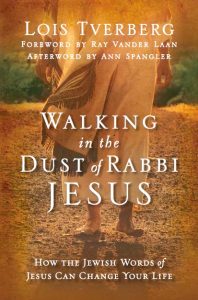 To explore this topic more, see chapter 3, “Loving God with Everything You’ve Got” in Walking in the Dust of Rabbi Jesus, Zondervan, 2012, p 42-54.
To explore this topic more, see chapter 3, “Loving God with Everything You’ve Got” in Walking in the Dust of Rabbi Jesus, Zondervan, 2012, p 42-54.
Photo by Emmanuel Phaeton on Unsplash


